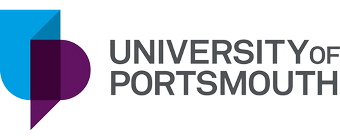This MSc Medical Biotechnology degree focuses on honing practical and analytical abilities in molecular biotechnology, such as researching internet databases, treatments, bioinformatics, and diagnosis. Students will develop practical laboratory skills in academia and industry while studying in a difficult setting influenced by professional practice, current research, and advanced laboratory procedures. With the UK as Europe's top biotech powerhouse and Portsmouth ranked third in research power, this postgraduate degree provides an ideal opportunity to prepare for a successful career in biotechnology, bioscience, or pharmaceuticals.

University of Portsmouth
MSc Medical Biotechnology
Entry Requirements
A second-class honours degree or equivalent in a relevant subject. Professional experience and other qualifications may be taken into consideration for applicants not meeting this requirement.
- English language proficiency at a minimum of IELTS band 6.5 with no component score below 6.0.
Career Prospects
This MSc Medical Biotechnology degree provides students with a thorough understanding of medical applications in biotechnology, as well as laboratory experience. It prepares them for positions in small and medium-sized firms, multinational corporations, public and private health-care providers, and even starting their own business. Graduates have gone on to work as clinical trials assistants, data analysts, bone densitometry technicians, molecular pathologists, research scientists, and account executives. Companies that have hired graduates include Eli Lilly, Portsmouth Hospitals University NHS Trust, and Publicis Health.
Course Details
Master's degree students may face additional demands, such as work or family responsibilities. The course structure is full-time, with a recommended weekly time of 37 hours, equivalent to a full-time job. This includes 12 hours of on-campus teaching and 25 hours of self-directed study. Master's study is deeper and more specialized than an undergraduate degree, allowing students to focus on a specific topic with academics committed to the subject. Independent study and research are more common, but teaching time is primarily in-person and face-to-face. Teaching methods include lectures, seminars, workshops, practical work, and assessments through written exams, practical work, problem-solving, presentations, essays, and project work. Students can test their skills and knowledge informally before final assessments, and receive feedback on both practice and formal assessments to improve in the future.
Modules
Core
Medical Biotechnology Research Skills and Project - 60 credits
Medical Biotechnology: Diagnostics - 30 credits
Medical Biotechnology: Therapeutics - 30 credits
Molecular Medicine - 30 credits
Optional
Bioinformatics and Omics - 30 credits
Biotechnology Enterprise - 30 credits
Clinical Pathology - 30 credits
Tissue Regeneration - 30 credits
Are you ready to start building your future?
Contact our admission counseller and get a free consultation.













